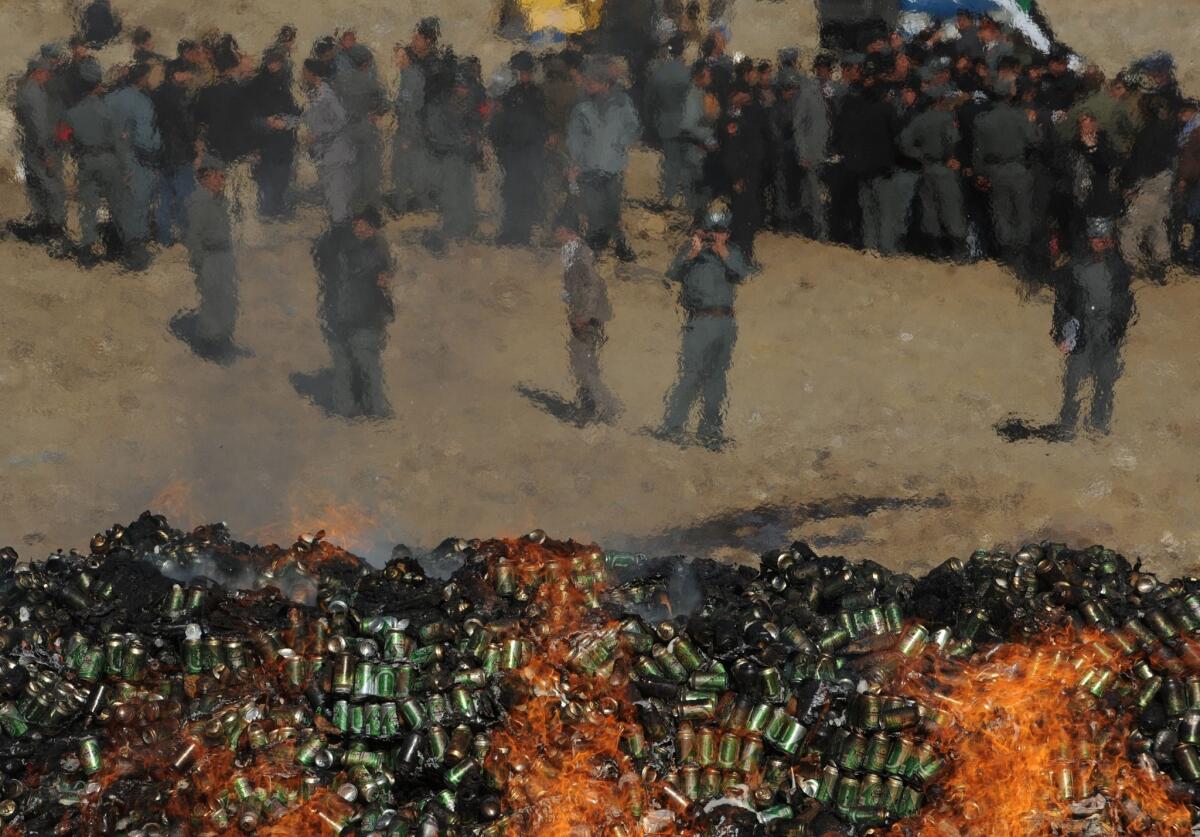Opium cultivation soars in Afghanistan, U.N. reports

- Share via
KABUL, Afghanistan – In a harsh indictment of the Western-funded drug eradication effort in Afghanistan, the United Nations on Wednesday reported a rise of nearly 50% in the 2013 opium harvest, with land used for cultivation reaching an all-time high.
The annual survey underscored the growing threat of the narcotic in the world’s largest opium-producing nation. The unchecked spread of opium cultivation has triggered widespread corruption, political instability and enormous profits for the Taliban insurgency, which controls Afghanistan’s primary poppy-growing provinces.
The United Nations Office on Drugs and Crime called the survey results “sobering” and criticized multibillion-dollar drug eradication efforts by the international community. The “dangerous countrywide trend of escalation” should come as “a warning and an urgent call to action,” said Yury Fedotov, executive director of the U.N. drugs and crime office.
The 2013 harvest involved 206,000 hectares under production – the most since 2007, when the U.N. reported a then-record 193,000 hectares. The average yield per hectare in 2013 rose by 11% over last year.
The United States alone has spent more than $6 billion fighting opium in Afghanistan through faltering eradication programs and largely ineffective attempts to persuade farmers to instead raise legal crops such as wheat. The U.S.-led coalition abandoned early efforts by its combat forces to destroy opium crops for fear of driving farmers into the arms of the Taliban. Eradication is now left to the Afghan government.
Opium earns far more per acre than any other crop; 72% of farmers surveyed by the U.N. cited high prices for opium as their main reason for growing the crop, up from 44% in 2012.
The report said that only 7% of opium farmers surveyed who had ceased growing poppies said they did so out of fear of eradication efforts. The most common reason cited for stopping production was because it violates Islamic religious beliefs, followed by the Afghan government ban on growing opium.
The historic production increase may have been spurred, in part, by the planned withdrawal of NATO combat forces at the end of 2014, the report said. It noted that some farmers may have tried to “hedge against the country’s uncertain political future.”
Documentation of opium expansion comes at a critical political and security juncture. The U.S. and Afghanistan are negotiating a security agreement designed to define post-2014 arrangements. Afghan national elections are scheduled in April to choose a successor to President Hamid Karzai, whose relations with the U.S. have soured in recent years.
The United States Embassy in Kabul declined to immediately comment on the opium report.
ALSO:
Palestinian accused of stabbing napping Israeli soldier to death
6 of 14 new states on U.N. Human Rights Council called abusers
U.N. denounces mortar attacks on schools in the Syrian capital
Twitter: @DavidZucchino
More to Read
Sign up for Essential California
The most important California stories and recommendations in your inbox every morning.
You may occasionally receive promotional content from the Los Angeles Times.














